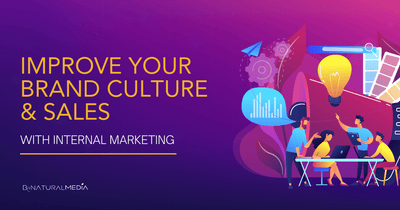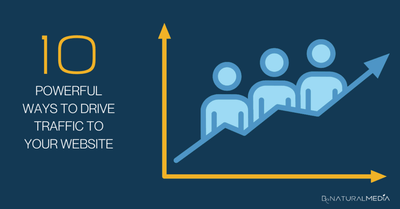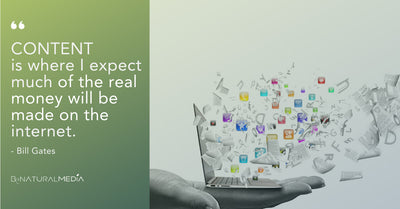Behavioral Psychology In Marketing and How To Use It For Good

Understanding the history and psychology behind marketing is crucial for navigating your marketing practices ethically. Ethical business practices not only establish trust in your brand, but save you the consequences of having a negative reputation.
So, what is the psychology behind marketing, and how do you use it for good?
Throughout history, marketing has adapted to both the needs of consumers and the needs of businesses. Recently, psychology has transformed the way marketers approach their strategy. Understanding how psychology impacts our daily decisions has become a prerequisite to successful marketing.
Table of Contents
- A Brief History Of Marketing
- Unethical Marketing
- The Dark Side Of Marketing
- Ethical Marketing
- Holistic Marketing
Terms & Definitions
- Marketing
- - is the action or business of promoting and selling products or services, including market research and advertising.
- Ethical Marketing
- - is the practice of a philosophical approach to marketing. It seeks to promote honesty, integrity, and responsibility in branding and advertising.
- Unethical Marketing
- - is the practice of a philosophical approach to marketing that aims to exploit victims’ emotions.
- Dark Marketing
- - uses situational propaganda and manipulation, but it doesn’t always imply an unethical intent.
- Holistic Marketing
- - is a business marketing philosophy that integrates various marketing strategies into one unified marketing plan, enabling a shared purpose to every activity and person interacting with and within that business.
- Propaganda
- - is the spreading of ideas, information, or rumors to help or inhibit an institution, a cause, or a person; or ideas, facts, or allegations spread deliberately to further one's cause or damage an opposing cause.
- Manipulation
- - is the radical programming or reprogramming of some or all of an individual’s desires, beliefs, and other mental states.

A Brief History of Marketing
Knowing the history of marketing can help you make important decisions for your business. By learning from the mistakes of past marketers, you can see the evolution from dark marketing to unethical marketing and the consequences that followed.
Humans have been practicing marketing for thousands of years, but only recently has the word “marketing” been used to describe commercial activities. To understand the psychology of marketing, we must first look at its history of creative methods and technological advancements.
Examples of marketing date back to antiquity, including branding and advertising in relics and artifacts. We also have ancient records of receipts and return orders on parchment, clay, and even stone, meaning customer service has always played an integral part as well.
Let’s look at a summary of marketing practices throughout history.
The original marketing method: Outbound Marketing
Initially, marketing consisted of selling your product or services by proclaiming them to the customer. This direct action is called outbound marketing. Outbound marketing created the demand for centralized markets and other marketing tactics in highly populated areas.
There was a lot of traffic in these older marketplaces. Because of this, people sold their products and services by talking at customers. Shouting, deal-making, acquiring prime locations, and short and persuasive pitches were common factors businesses utilized to gain the attention of their prospects.
While marketing is evolving and slowly outgrowing outbound marketing practices, they do still exist today. Commercials and other advertisements, for example, interrupt the consumer and proclaim a product or service without personal data or extensive marketing research.
Though outbound marketing may be diminishing, there are still the opportunities and benefits of brand visibility or initiating sales funnels.
The Printing Press
Printed marketing materials became the standard model of advertising in the late 1400s, and have had a lasting presence. In the 19th century, posters and billboards gained a lot of attention and use. They became so popular, in fact, that there were laws created banning the placement on some properties to prevent unethical marketing. Today, printed fliers, magazines, newsletters, and newspapers are still popular among consumers.
Printed marketing methods may stick around for a while, but the market is rapidly moving toward a more digital approach to maintain ethical marketing and prevent deforestation.
Many companies use this adjustment as an opportunity for positive press. A paper processing company, for example, may claim to plant two trees for every one they cut down, effectively saving their brand’s reputation and sustaining their business model by promoting their ethical works in marketing campaigns.
TV, Telephone, and Telecommunications
ith the release of TV, radio, and telephones in the 20th century, marketing adapted once more to the possibilities of acquiring more customers through radio ads, commercials, and cold calls.
Essentially, marketers could start personalizing the marketing process and spread their message beyond a person’s immediate vicinity in record time.
After the creation of telecommunication, a major shift began to occur through television and more specifically, news media, the new type of marketing. As the news channel became more popular, journalism began to evolve as well. Many arguments to this day have been made about the ethics of the news media.
Even so, outbound marketing was still the most popular during this time. Commercials interrupted shows and events to advertise their products. Marketers would often cold-call prospects without their permission and still do.
Cold calling and even tv ads are becoming less appealing to the modern consumer and especially to millennials. These once-popular practices are trending down and moving closer to the unethical side of marketing. Most people now consider them as an invasion of their privacy as data-driven, digital marketers tailor their message to target markets so well.
The Digital Age Explodes
With the advancements in technology, from cell phones to computers and tablets, the digital age has allowed us to connect to one another more than ever. We use these tools to make life easier, entertain ourselves, network with businesses, friends, and family, and market products and services. With the digital age exploding, marketing had to adapt.
Community markets turned into amazon, eBay, and other social sites. Traditional mail turned into email. Digital downloads turned into SaaS products. Marketing methods will only continue to evolve. The amount of opportunities to market your products and services in the digital age is drastically different from the market squares and outbound marketing methods of the past.

This also means the way you market your business may be drastically different due to outbound marketing losing popularity. Unethical marketing can be alluring to some because it never goes away and is always an option in times of desperation. For example, people now abuse our interconnectivity with unethical hacking, stealing private data, and TK marketing practices.
People have always had the opportunity to practice marketing in unethical ways. We have learned how ethical practices can easily turn into unethical marketing through legislation, inventions, and cultural transformations. Yet, we are still learning what all of these digital products mean and the morality behind their use.
Unethical Marketing
Since psychology has found a home in marketing, there is an increased potential for new unethical marketing practices. While the reason these tactics are considered unethical often depends on the situation, many customers consider them deal-breakers. What does unethical marketing entail, exactly?
Unethical marketing practices you should avoid:
- Communication without consent
- Controversial opinions to “get the conversation started”
- Taking advantage of your customers’ emotions
- Misleading the market with false information

Let’s examine these more closely and see why they are considered unethical.
Communication Without Consent
The Federal Trade Commission (or FTC) enforces commercial email standards through the CAN-SPAM Act. One of these standards is not contacting prospects without their consent. If a customer requests to unsubscribe, you are required by law to remove them from any communication.
An unethical and illegal act would be buying an email list of prospects and communicating with them without their consent. Before doing so, consider the reputational harm you will accrue in attempting to communicate with these prospects.
Controversial Opinions
News outlets are particularly guilty of this unethical practice. Some marketers are tempted to present controversial or unpopular opinions to get conversations started with the notion that “no publicity is bad publicity.” However, relying on this unethical practice often leaves marketers with more enemies than customers. It doesn’t create an environment for growth with your prospects but creates an atmosphere of tension and division.
While there may initially be an increase in impressions and engagement with controversial opinions, choosing to use this tactic will ultimately do more harm than good.
Exploiting the Emotions of Prospects
A quality advertisement can make your audience laugh hysterically, recall a blissful childhood memory, or even shed a tear - thus establishing a connection and trust with your brand. How you choose to use that trust is just as important as the process of building it.
Dante’s Inferno argues that betraying someone’s trust is the lowest layer of Hell. Concealing your intentions and taking advantage of their trust is worse than being unethical from the start.
Establishing a bond with your customers can quickly backfire when honesty isn’t practiced. Setting unrealistic expectations and not meeting those expectations or blurring the line will undoubtedly create a negative response.
Invoking an emotional response isn’t necessarily unethical. It’s practically unavoidable. The goal is to use emotion and reason to sell your product or service. Using only emotion will result in negative reviews and diminish your brand authority by promising unrealistic expectations.
Misleading the Market
Not only is it unethical to create misleading ads, but it is also illegal. The FTC regulates the accuracy of your advertising by demanding marketers make truthful statements, cite their scientific claims when possible, and be honest with the negative features of the product or service.
It’s natural for marketers to use their best features in advertising and avoid negative ones. The veil between ethical and unethical can become hazy in advertising because no one wants to point out the negative implications of their product or service. You enter the unethical marketing domain when you lie or cannot cite your research.
The uncertainty between ethical and unethical practices can be concerning - where is the line? It’s not always clear. A marketing method may be ethical and unethical simultaneously in different situations, depending on who you ask. As a society, we’ve forced the government’s hand to clarify what is and isn’t ethical marketing through laws and regulations.
For example, one might think, “Our competitors use harmful and manipulative propaganda. Our ads, on the other hand, are honest and truthful.” However, what is and isn’t ethical often resides in the individual’s perspective.
What is this method of marketing that is both ethical and unethical in different situations?
The Dark Side of Marketing
The dark area of marketing remains a gray area. Many people question the morality of advertising as a practice because of the use of dark marketing. Yet, dark marketing and unethical marketing aren’t always interconnected.

With the advancement of psychology, many marketing practices are integrating psychological tricks to get prospects to buy their products and services. From an outside perspective, this can sound like propaganda or manipulation.
The 1988 film They Live portrays the dark side of marketing as unethical by showing the manipulative efforts of capitalists to get people to breed, buy products and services, and obey the government. Marketers, and even governments worldwide, know of these manipulative tricks and use them as propaganda.
However, does that mean dark marketing is inherently unethical? Not necessarily.
It’s not wrong to incorporate emotional marketing tactics that convince your consumers to purchase your product or service.
Why Do People Buy?
Until recently, businesses didn’t know how to sell exclusively to our emotions on a grand scale. This changed in the early 1900s when psychology began to mix with public relations and marketing.
Edward Bernays, a nephew of Sigmund Freud, was quoted saying:
"Modern business must have its finger continuously on the public pulse. It must understand the changes in the public mind and be prepared to interpret itself fairly and eloquently to changing opinion."

Bernays gave an example of this transformation in his book Propaganda with the example of selling a piano in the 1920s. During this time, typically only the wealthy owned pianos. They were not a necessity for Americans, but a luxury.
First, he describes how an old advertiser would sell a piano in the 1920s.
The Old Advertiser
The old advertiser would highlight the piano’s benefits and features, yelling “Buy Now!” consistently throughout the process. Initially, this was meant to break down any sales resistance.
Although average Americans knew it was a nice, affordable piano being sold, they just didn’t think owning a piano was necessary. The sales resistance was understandably steadfast, and no amount of outbound marketing would convince these potential customers to purchase pianos.
The New Advertiser
The new advertiser, though, would attack the situation from a different angle. The new advertiser recognized how the human brain works and bypassed sales resistance, convincing the customer that their purchase was purely coincidental.
The new advertiser would do this by creating an environment that exemplifies the piano in the American home. They would hire internal designers to make music rooms, put on home fashion events at museums, or do anything to show how great a piano looks in a household.
The new advertiser convinced Americans that the status quo had shifted. If they wanted to keep up with the times, they needed a piano. For many, it became a necessity rather than a luxury.
The consumer was no longer being bothered by the old advertiser to buy the piano, and the new advertiser doesn’t need to convince the consumer. They want to purchase a piano before the sales process even occurs.
But, isn’t this just propaganda, another unethical marketing tactic? Indeed, Americans never needed those pianos.

Propaganda
Edward Bernays knew of the stigma behind the word propaganda. He says:
"I am aware that the word ‘propaganda’ carries to many minds an unpleasant connotation. Yet whether, in any instance, propaganda is good or bad depends upon the merit of the cause urged, and the correctness of the information published."
The word “propaganda” was initially used to explain the education of missionaries before being sent out by the church. The negative stigma around the word came after World War 1.
Bernays concluded that propaganda was a natural human activity for any society, “whether it be social, religious or political, which is possessed of certain beliefs, and sets out to make them known, either by the spoken or written words, is practicing propaganda.”
Propaganda is something societies do regardless of our desires never to use it. Instead, how we use propaganda becomes the issue.
Are you convinced that propaganda is not inherently an unethical practice? Or, do you believe it to be some sort of manipulation? Let’s explore that.
Manipulation
Manipulation is most commonly referred to as the radical programming or reprogramming of some or all of an individual’s desires, beliefs, and other mental states.
There are a handful of arguments for manipulation being unethical. One of the most used is that manipulation bypasses reason in the agent, invoking an emotional or subconscious response.
For example, saying the word “hungry” redundantly in your food advertisement to convince prospects that they are, indeed, hungry is manipulation.
One can argue that your marketing uses a psychological trick to manipulate your clients. On the other hand, a business is not performing mind control or hypnosis to take away someone’s reason. The customer still has their reason regardless of the effects of your ad’s emotional influence.
Is this unethical? Which actions are manipulative and which actions are not? It’s up to the individual to decide, and if the individual can’t decide, the government will.
Ethical Marketing
Propaganda and manipulation do not imply repression of the truth. Convincing people requires a type of propaganda. Saving someone’s life may require manipulation. Can these seemingly unethical acts be used for good?
It depends. Some argue propaganda and manipulation are never good. Others argue that they can be used for good.
Plato, for example, argues for truth yet requires one noble lie in “The Good City”.
Plato’s Noble Lie - Republic
In Plato’s Republic, Plato argues that there are three parts of the soul: the reasonable part, the courageous part, and the appetitive part.
The soul also represents the city. If the city is good, the reasonable are the wise philosopher-kings, the courageous are the soldiers, and the appetitive are the merchants and farmers.
In the good city, there exists a myth told to everyone known as the parable of the metals. It is meant to convince them of their origin and organize their society.
The myth explains how the Earth gave birth to everyone: there are no mothers, no fathers, no daughters, and no sons. Everyone in the city is a brother or sister. When you’re born, your soul is assigned a metal: gold, silver, iron, or brass. These metals designate your nature and thus your occupation in the city—philosopher-king, soldier, merchant, or farmer.
Plato argued that this Noble Lie would be a benefit to the city, bringing harmony and unity. This may be the only lie in the city of truth, but it is a lie nonetheless.
This myth would be used as propaganda, and those that didn’t subscribe to it would be cast out from the city. Now, we must understand the times in which Plato lived. Life was extremely different. Yet, his idea of the Noble Lie being good when it’s meant to unify a city to a common goal is still being argued to this day.
Ancient virtue ethicists insisted that rulers needed to lie and manipulate the citizens through propaganda to benefit society.
The ruling class understands this, and so do high-level marketers. The question is, do you think manipulation and propaganda can be used for good?
Instead of manipulating and propaganda, let’s look at what your customers want and employ education and persuasion. Remember, your wants and desires, may not be the same as your audience.
Holistic Marketing
Holistic marketing utilizes the philosophy of holism. This means that the business and its parts are viewed as one unified entity, and all of its activities are attuned to one specific goal.

Unlike unethical marketing, dark marketing treads the line of ethical and unethical. When properly used, ethical dark marketing means acting with honesty and integrity to support your reasoning.
Holistic marketing attaches value to your business and creates a purpose for everyone. Customers and employees are a part of the journey instead of the business working solely towards sales and profits.
The psychology of marketing is complex and constantly changing. It’s up to us as a society to decide how we use technology and other advancements to market our ideologies, products, and services and what we determine to be ethical and unethical as we move forward. ∎
Read more about how to grow your business with holistic marketing in this article.









